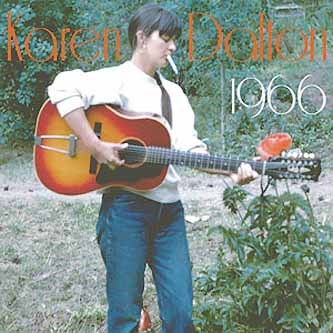The Clearing
Bowerbirds
Indie
8 out-of 10
Death is so uncomfortable and unavoidable that we spend the majority of our time trying to avoid it. Whether in conversation, or in its physical form, it's something most people don't think about. However, remove the human element to this, and death is a constant and mostly positive happening. The North Carolina duo, Bowerbirds, have always filled their albums with the images of nature and the damage we have caused as humans, kind of like a very passive, polite guilt trip. In their latest release The Clearing they establish that everything ends and piece by piece, is rebuilt.
Over the past three years since the release of 2009's Upper Air, the Bowerbirds have gone through many changes. Their sound shifted from spares folk with low production cost to a well rounded, full, polished masterpiece. Sounds are layered and swimming in a sonic river. The Clearing was recorded in Justin Vernon's (Bon Iver) Wisconsin recording retreat and I find many comparisons to the sounds of the new Bon Iver record and this. The way melodies float and linger while still holding a strong presence is very Bon Iver-esque.
The narrative of Bowerbirds has remained unchanged however. I doubt they could ever release an album that doesn't reference the sky, the forest, the sea, etc. It's who they are, and they've always lived close to nature. The bands' main members Phil Moore and Beth Tacular are also love birds, and have constructed a small cabin in the woods in which they live. This experience is reflected in the lyrics of the album, as well as their break up and rekindling, the illness of Ms. Tacular, and the plights of life in the wilderness. At times The Clearing seems daunting and hopeless.
However heavy The Clearing becomes, it is ultimately hopeful. The closing track "Now We Hurry On", echoes a lyric from "In Our Talons", the standout moment from their debut album Hymns for a Dark Horse. "No, you're not alone," Moore promises.
- SEAN CRAIB-PETKAU
1966
Karen Dalton
Indie
9 out-of 10
During my time spent on the road I had heard Karen Dalton's name thrown around sporadically. Most recently was in the small Northern Ontario town of Wawa, where I had stumbled upon a Friday night open mic in a small dark bar behind a pizza parlor. I had never heard a recording of Dalton singing, but a woman there decided she was going to perform Dalton's most notable tunes that night. I had never felt like more of an outsider. Obviously the youngest member in the group by more than a decade, I felt I couldn't completely appreciate the tenacity of the short set. I looked up Karen Dalton on the internet shortly after and I was speechless. Not only was this stranger an unbelievable impersonator, Karen Dalton's heartbreaking voice, along with her selection of songs, completely made me rethink what I knew about the folk movement of the 60's and 70's.
Dalton only released two studio albums in her career. It's said that she was never one to stand in the spot light and was much more eager to play small shows for friends. Dalton didn't write songs of her own, but instead borrowed from songwriters of the time and interpreted these songs into her own style. On 1966 Dalton spotlights two songwriters in particular; Fred Neil and Tim Hardin. She also sings traditional tunes like "Mole in the Ground". 1966 is the most recent collection of Dalton's recordings to come to light since her passing in 1993. From what I understand this album wasn't meant to be recorded as it was a rehearsal between Dalton and her estranged husband Richard Tucker, whose friend had brought a portable reel-to-reel tape recorder. 1966 is a very unpolished presentation of Karen Dalton, which only adds to its poignancy. Their imperfect harmonies and botched endings are something so rarely heard .
- SEAN CRAIB-PETKAU

.png;w=120;h=80;mode=crop)


